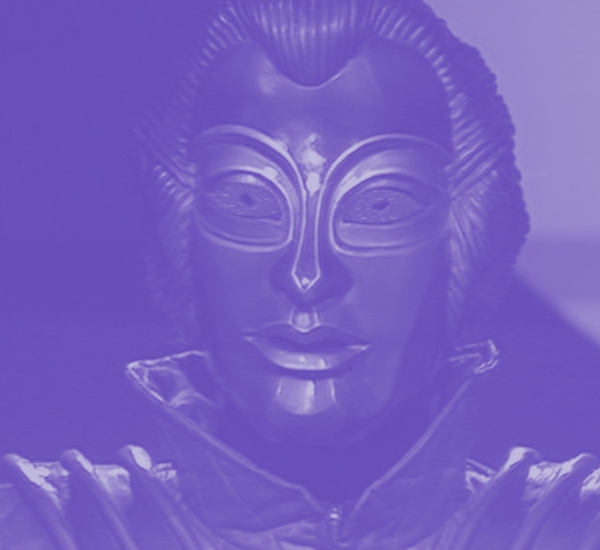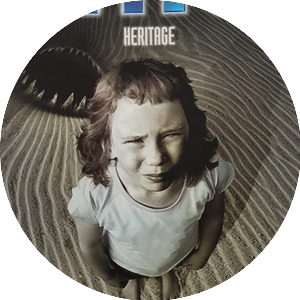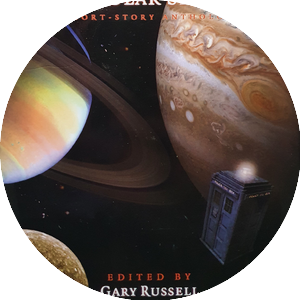Motivation
In 2003, I shared a newsgroup with Jim Smith, who had co-written some of the Kaldor City series. When Checkmate was released, the subject came up and – based on what I heard – I decided to give the series a go. I was hooked before the first instalment had even finished, and quickly became a fan. Then, shortly after Checkmate, the series lead Russell Hunter sadly died, and it seemed to underline that Kaldor City had reached its natural conclusion.
Then Daniel O’Mahoney – another Dr Who writer and member of the same newsgroup – wrote an outstanding drama called Storm Mine, which picked up where Checkmate had finished and seemed to say that there were plenty more possibilities for Kaldor City to continue. Half of my love of Kaldor City comes from Storm Mine: it is dense and theatrical and intelligent, and my frustration at seeing it dismissed by some listeners for not exploring the consequences of Checkmate led to me posting an article online about how I saw Storm Mine relating to – and continuing on – the rest of the series.
This led to series producer Alan Stevens getting in touch and asking if I’d be willing to write a review of Storm Mine for Celestial Toyroom, the magazine of the Doctor Who Appreciation Society (DWAS).
I think it was purely based on the post you had written on Outpost Gallifrey. It was articulate, clever and insightful, and so basing it on that, you seemed like a good person to approach.
I was more than happy to write the review, and once it was delivered I asked if Alan was looking for anybody to write the next Kaldor City story. He wasn’t … but if I had a good enough idea, he might be convinced otherwise.
Getting the Story
Coming up with a story was difficult.
Kaldor City was the story of a grand manipulation, and it had – obliquely – reached the point where its all-powerful antagonist had clearly won. Unless my story was just going to show the Fendahl winning more, it would either have to uncover a way to defeat the antagonist or else develop an interesting next step for the creature: what exactly did it intend to do now that it had successfully assimilated Kaldor City? Storm Mine had laid some hints about the creation of a new form of robotic life, but instead I opted to focus on the main question about Checkmate I had that Storm Mine hadn’t answered: why had the Fendahl presented Kaston Iago with the apparent opportunity to go back in time and change history?
I came up with a story that followed Kaston Iago as he travelled back again and again to that same moment the Fendahl sent him to. As he tried to piece together exactly why he was there, and whether he could use that knowledge to bring about the eventual defeat of the Fendahl.
The Pitch
I sent my rough ideas to Alan, rather than a full synopsis or a draft script, as he had made it clear he liked to thrash ideas about before he committed to them. One of the writers I knew who had worked with him before said that he liked to be argued into liking a story: once that happened, he was completely committed to it and would move hell or high water to get it made.
I think that’s true. I like working with other people on scripts and books because the back and forth acts as a testing ground for ideas. However, I can see how this might be a bit daunting to someone who is not used to this approach. I can also see how frustrating it can be if a story fails to materialise, and also perhaps, a little intimidating.
It was a working practice that directly led to the high quality of the Kaldor City series, with every potential niggle being argued through and ironed out long before anything was set down on paper. But what I hadn’t anticipated was how unprepared I was for working that way.
Editorial
My idea wasn’t strong, and it didn’t have anything to add to the series except an attempt to explain some of the ambiguity in the previous instalments. My only reason for coming up with it was to keep the series going, and to become part of it: in my excitement, I had forgotten to ask exactly what Kaldor City as a series needed to happen next. In fact, I avoided asking – if I had, I think I might have agreed with Alan that it was perfectly complete within itself and would only carry on if there was an extraordinary reason for it to do so. So instead I pushed on.
My memory of it is a bit fuzzy. In fact the only clear thing I remember from your outline was that it featured a scene with Rull in the hospital hearing a Fendahleen coming up the corridor.
The first problem I hit was that Alan was adamant that a creature like the Fendahl would have motives that were completely unfathomable by human beings. As the bulk of my ideas centred around showing what the Fendahl would do after it had assimilated Kaldor City, there was a lot that was dissected and eventually discarded.
This is correct, and I would have been unshakable on this because it was a prerequisite from Chris Boucher. Therefore, what we have at the end of Checkmate is an overlap between Justina’s human mind and the alien mind of the Fendahl. Are her motives simply to save Iago? Or, following her discussion with Carnell, about confusing love with pain, was she trying to test him? Was it really Justina talking to him, or was it the Fendahl, and if so, then why, and what for?
There were some aspects that Alan did like, but as I tried to chase Alan’s approval by expanded them I kept pushing them away from whatever had first appealed about them. There was more discussion and dissection, but still nothing like a story emerged.
The situation you faced came down to this. If you chose to write a script that’s set between Checkmate and Storm Mine, then you are placed in a position of answering a question posed by the Fendahl which, by definition, cannot be answered. And if you try and write a story after Storm Mine, then you do so without having any narrative lifeline to lead you back to something that can be understood.
At that point in my career, I wasn’t greatly confident about my writing. I took it personally every time Alan disliked the way an idea was going, and started to feel he was being deliberately obstructive. I found myself indignantly wondering whether he even wanted Kaldor City to carry on … which was completely unfair: Alan has always been quite clear that he didn’t, unless he was unequivocally convinced that a new story had something to add.
I set you an impossible challenge, to define the indefinable, and it hurt you, and I’m sorry, but the idea of the Fendahl came from Chris Boucher’s mind, not my own, and although I knew it was something that could not be comprehended, I nevertheless struggled paradoxically to comprehend it, or to find someone who could provide me with an answer to the impossible question “What the fuck is this thing?”
Try as I might, I couldn’t come up with an answer that made Alan excited. Even though I knew it was my own insecurity at fault, I decided that I wasn’t going to enjoy getting to the end of this creative process: I told Alan that I didn’t think I was going to come up with something he would like, and that I was going to stop trying.
It was the first and only time I have withdrawn from something I had told an editor I could do. Alan was very gracious about it, but I am still disappointed that I didn’t manage to come up with an idea that would be a fitting continuation of such a fantastic series. Or perhaps I just dodged the bullet of being the person who had to follow up on something as note perfect as Storm Mine.
What Happened Next?
As time passed, I did get less insecure about my writing. The sting of failing to carry on Kaldor City also lessened as I heard about other writers who had tried and failed to follow Storm Mine … including Alan himself, who tried to come up with an idea with Fiona Moore and only succeeded in confirming that Kaldor City didn’t need any adding to. I kept in sporadic touch with Alan, and did my bit to help promote Kaldor City to people who hadn’t heard it. He arranged for a revised version of my original article about Kaldor City to be printed in Celestial Toyroom, and sent over some review copies of the equally wonderful Magic Bullet Faction Paradox series.
And while that was going on, it suddenly occurred to me how I would carry on Kaldor City, if I could go back and do it all differently. In looking at the two threads left hanging by the series, I realised I’d focussed on the wrong one in trying to work out why Kaston Iago was sent back in time.
I should have been thinking about the robots.
Storm Mine only works because there were potentially still a number of unresolved questions concerning the place of the robots in the scheme of things. If the only piece of the Fendahl we can get a handle on is its desire to perpetuate itself and propagate a new food source, then that gives you a lead in. Something to hang on to and use as a base from which to try and comprehend everything else that’s happening.
Time has of course passed us all by, but I wrote the story anyway and showed it to Alan. He quite liked it – although, being Alan, he also had some suggestions about what wasn’t right – and so I’m taking that as an official stamp of approval. So if you want a next instalment of Kaldor City, you can read it here now.


